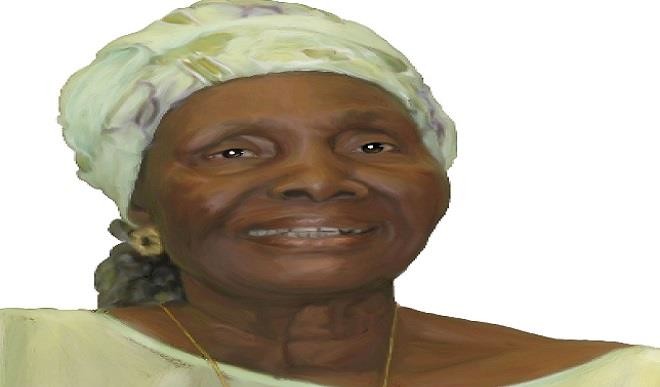Adieu, Ma Mary Brownell
Even though she had reached the ripe old age of 88 years, many people who met Mary Brownell, the famous Liberian educationist and human rights advocate at her always open and welcoming home on Ashmun Street in Monrovia, Liberia, never believed she was about to transit from this world. To the end, she seemed indestructible […]


Even though she had reached the ripe old age of 88 years, many people who met Mary Brownell, the famous Liberian educationist and human rights advocate at her always open and welcoming home on Ashmun Street in Monrovia, Liberia, never believed she was about to transit from this world. To the end, she seemed indestructible and her advocacy of women’s rights and the relevance of disciplined motherhood never waned. Ma Mary, as she was known by all, was a striking figure. Tall and graceful in her younger days, as she aged, she retained an incredible sense of intellectual energy that made it seem that she would go on living forever. She was never tired of discussing, or seeking solutions to Liberia’s problems, and she came to be regarded as the true mother of the nation. The fact that her children included two of Liberia’s most internationally renowned citizens, the recording artiste Miatta Fahnbulleh and the respected political thinker, writer, former Foreign Minister and National Security Adviser Henry Boima Fahnbulleh Jr. contributed to this perception of her as a mother whose progeny included the entire citizenry. Her role in fighting to bring sanity and peace back to her beloved Liberia after it descended into brutal inter-ethnic conflict was monumental. There is a famous story of how at one of the many peace parleys she led a group of women to threaten to lock several West African Heads of State into a conference room until they found a solution to the conflict. The president of Guinea, a close neighbour of Liberia, is reputed to have said that her threat galvanised them into finding a successful formula for ending the war.
The above story might be apocryphal but it is easy to believe because Ma Mary’s life was replete with dramatic incidents. In an appearance before the Liberian Truth and Reconciliation Commission after the war, she shocked the audience and members of the commission with a confessional apology to her son, Boima, for not believing in his principles and according to her, treating him like a stepson. However, many of those who were close to Ma Mary believe that this was actually a ploy that she conceived to enable her encourage the women of her nation to be tolerant and accommodating of their children’s conduct as they sought to heal the wounds of war. Ma Mary was actually a very indulgent mother and she absorbed many younger people whom she described as her “painless children” into her family circle. She was generous with her time and her meager resources to all and sundry. When her daughter, Miatta, gave up her international singing career to establish a school for indigent children in Monrovia after the war, it was not surprising that it was Ma Mary’s home that became the school premises. Mary Brownell inspired those who encountered her by her own example of sacrifice and commitment to the welfare of the masses.
Her first husband, Ambassador Henry Boima Fahnbulleh Sr. was a revolutionary figure in Liberia’s modern history. In the days when the notorious traditions of Americo-Liberian prejudice against natives were pre-eminent in the society, Ma Mary took a bold step when she married the Vai aristocrat. He was persecuted for his courageous and outspoken advocacy of the rights of the indigenous people under the guise of being charged with treason because he dared to talk to communist Chinese diplomats when he served as Liberia’s Ambassador to Kenya. Ma Mary and her children suffered years of persecution simply for being H.B. Sr.’s family. Eventually however, Ma Mary became known in her own right for her advocacy of justice for the indigenous as well as the indigent peoples of Liberia. To her, Liberia’s real destiny lay in unity among all its peoples. This objective she pursued with dedication and relentless emotional commitment as an educator and administrator throughout her lifetime. She remained in Monrovia through all the vagaries of war and witnessed some of the most brutal days of the violent upheaval with exemplary bravery. She never ceased to believe that the West African intervention to bring peace to Liberia was right and resisted overtures to pledge loyalty to various factions in the conflict with a dignified commitment to the cause of a regionally brokered peace. Eventually, she served as a National Elections Commissioner for the elections that led to the victory of Liberia’s first female president, Ellen Johnson-Sirleaf, and so played a part in ushering in the restoration of stability in her beloved country. As she is laid to rest this weekend in Monrovia, Liberians, and indeed all West Africans, will pay homage to a woman whose passing marks the end of an era of crises but also signals the beginning of a new era of hope!
